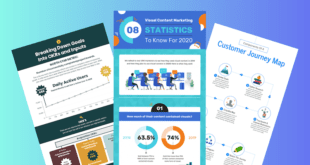Digital marketing for coaches refers to the strategic use of online channels and tactics to promote coaching services, attract clients, and build a strong brand presence in the digital landscape. In today’s interconnected world, where people turn to the internet for information and solutions, digital marketing offers coaches a powerful platform to reach their target audience, showcase their expertise, and establish meaningful connections.
In today’s digital age, a strong online presence is essential for coaches to effectively reach and engage with their target audience. Digital marketing provides tools and strategies for coaches to enhance their visibility, build their brand, and attract clients. This article will explore the basics of digital marketing for coaches, covering key concepts, strategies, and best practices to navigate the digital landscape successfully.
Types of Digital Marketing for Coaches
Content Marketing:
Content marketing involves writing and sharing coaching-related blog posts, articles, videos, and podcasts. Coaches can use content marketing to demonstrate their expertise, offer insights, and address their audience’s needs. Coaches can become industry experts, attract organic traffic, and engage with potential clients by consistently producing high-quality content.
Social media marketing:
Coaches can connect with their audience, share content, and promote their services on Facebook, Instagram, LinkedIn, and Twitter. Coaches can connect with followers and potential clients on social media. Coaches can showcase their expertise and attract clients by posting relevant content, participating in conversations, and using live videos and stories.
Email Marketing:
Email marketing is a powerful tool for coaches to communicate with their audience, nurture leads, and promote their coaching programs. It allows coaches to deliver personalized content, share valuable resources, and announce special offers or events to their subscribers. By building an email list of potential clients and regularly sending targeted campaigns, coaches can stay top-of-mind, provide ongoing value, and encourage conversions. Additionally, email marketing enables coaches to track engagement metrics, segment their audience, and refine their messaging for better results.
Influencer Marketing:
Influencer marketing promotes coaching services by partnering with industry leaders. Coaches can reach more people and increase engagement by partnering with influencers in their target demographic. Sponsored posts, testimonials, and content collaborations by influencers help coaches reach more people, raise brand awareness, and attract clients. Influencers’ credibility and trustworthiness can boost a coach’s reputation and credibility with their target audience.
Online workshops and webinars:
Online webinars and workshops let coaches teach live. They can use email marketing, social media, and other channels to attract participants and generate leads on personal development, career growth, or coaching niches. Coaches answer questions and provide resources during webinars to build trust and client relationships.
Podcast Sponsorships and Guest Appearances:
Sponsoring or guest-hosting coaching-related podcasts can reach a targeted audience. Coaches can sponsor or guest on podcasts to share their knowledge and experiences. Podcast sponsorships allow coaches to promote their services to a captive audience interested in personal development, self-improvement, or related topics. Coaches can demonstrate their expertise, build credibility, and attract clients who share their values by appearing on podcasts.
Analytics and tracking:
Digital marketing should be based on data, and coaches should keep an eye on metrics and key performance indicators (KPIs) to see how well their strategies are working. Tools like Google Analytics and social media insights give coaches useful information about website traffic, audience engagement, and conversion rates. This lets them make smart decisions and improve their campaigns to get better results.
Developing Your Marketing Strategy as a Coach
As a coach, having a well-defined marketing strategy is crucial for attracting clients, establishing your brand, and growing your coaching business. Here’s a comprehensive guide to developing an effective marketing strategy tailored to your coaching services:
1. Identify Your Target Audience:
Begin by clearly defining your target audience—the individuals who are most likely to benefit from your coaching services. Consider factors such as demographics, psychographics, and specific needs or challenges your coaching can address. Understanding your target audience will help you tailor your marketing efforts and messages to resonate with potential clients.
2. Define Your Unique Value Proposition (UVP):
Determine what sets your coaching services apart from others in the industry. Your unique value proposition (UVP) should communicate the benefits and outcomes clients can expect from working with you. Whether it’s your coaching approach, expertise in a niche area, or personalized coaching style, clearly articulate what makes your services valuable and distinct.
3. Create compelling content:
Develop high-quality content that showcases your expertise, addresses common challenges faced by your target audience, and provides valuable insights and solutions. Content can take various forms, including blog posts, articles, videos, podcasts, social media posts, and downloadable resources. Consistently sharing valuable content will position you as a thought leader in your field and attract potential clients to your coaching services.
4. Build an Online Presence:
Establish a professional online presence by creating a user-friendly website that highlights your coaching services, credentials, testimonials, and contact information. Optimize your website for search engine optimization (SEO) to improve its visibility and attract organic traffic. Additionally, leverage social media platforms such as LinkedIn, Facebook, Instagram, and Twitter to engage with your audience, share content, and promote your coaching services.
5. Utilize email marketing:
Implement an email marketing strategy to nurture relationships with potential and existing clients. Offer valuable content, resources, and insights through email newsletters, personalized messages, and email courses. Segment your email list based on subscribers’ interests and engagement levels to deliver targeted and relevant content that resonates with their needs.
6. Network and collaborate:
Build relationships with other professionals, influencers, and organizations in your industry or niche. Attend networking events, join relevant groups and communities, and participate in online forums and discussions. Collaborate with complementary businesses or professionals to expand your reach and tap into new audiences through joint ventures, webinars, guest blogging, or podcast appearances.
7. Collect and showcase testimonials:
Encourage satisfied clients to provide testimonials and reviews highlighting their positive experiences with your coaching services. Display these testimonials prominently on your website, social media profiles, and marketing materials to build credibility and trust with potential clients. Authentic testimonials serve as powerful social proof and can significantly influence prospects’ decision-making processes.
8. Offer free resources and consultations:
Provide free resources, such as ebooks, guides, quizzes, or webinars, to demonstrate your expertise and provide value to your audience. Offer complimentary coaching consultations or discovery calls to prospective clients, allowing them to experience the benefits of your coaching firsthand and explore how your services can help them achieve their goals.
9. Track and measure results:
Regularly monitor and analyze the performance of your marketing efforts to identify what’s working well and where there’s room for improvement. Track key metrics such as website traffic, conversion rates, email open rates, social media engagement, and client acquisition costs. Use these insights to refine your marketing strategy, allocate resources effectively, and optimize your campaigns for better results.
10. Stay flexible and adapt.
The digital marketing landscape is constantly evolving, so it’s essential to stay informed about emerging trends, technologies, and best practices in marketing. Remain flexible and adaptable in your approach, willing to experiment with new strategies and tactics to stay ahead of the competition and effectively reach your target audience.
Example Coaches Who Need Great Marketing
1. Life Coaches:
Life coaches help people improve many areas of their personal and professional lives, such as their health and wellness, relationships, career advancement, and personal growth. Life coaches need to use good marketing strategies to stand out in a crowded market where many people are looking for help. This will help them get clients and show how valuable their services are.
2. Business Coaches:
Business coaches help entrepreneurs, executives, and professionals improve leadership, boost operations, and reach their goals. Business coaches must stand out in a crowded market by demonstrating their expertise in strategy development, organizational management, marketing, and sales for startups, small businesses, and large corporations.
3. Health and Wellness Coaches:
Health and wellness coaches help people live healthier, manage chronic conditions, and reach fitness goals. Qualified health coaches are in demand as health and well-being become more important. Health and wellness coaches need effective marketing to reach their target audience, promote their coaching programs, and build credibility in a competitive industry.
4. Career coaches:
Career coaches help people change careers, find new jobs, and grow professionally. Career coaches need effective marketing to showcase their expertise and success stories and attract clients looking to advance their careers and achieve their professional goals, whether they are targeting recent graduates, mid-career professionals, or career changers.
5. Executive Coaches:
Executive coaches work with senior leaders, executives, and managers to enhance their leadership skills, improve performance, and drive organizational success. With a focus on leadership development, executive presence, and strategic decision-making, executive coaches require effective marketing strategies to position themselves as trusted advisors, attract high-profile clients, and demonstrate the impact of their coaching interventions on individual and organizational performance.
6. Relationship coaches:
Relationship coaches provide guidance and support to individuals and couples seeking to improve their relationships, communication skills, and emotional well-being. Whether focusing on romantic relationships, family dynamics, or interpersonal communication, relationship coaches need compelling marketing strategies to connect with clients, address their specific needs and challenges, and showcase the transformative outcomes of their coaching services.
Conclusion
Digital marketing offers coaches a wealth of opportunities to connect with their audience, showcase their expertise, and attract clients. By understanding the basics of digital marketing and implementing proven strategies, coaches can establish a strong online presence, drive engagement, and ultimately grow their coaching business. Remember to continually evaluate and refine your digital marketing efforts based on performance metrics and feedback to achieve sustainable success in the digital landscape.
FAQs (Frequently Asked Questions)
1. How can I measure the success of my digital marketing efforts as a coach?
Key performance indicators (KPIs), such as website traffic, conversion rates, email open rates, social media engagement, and client inquiries, can help you gauge the effectiveness of your digital marketing strategies.
2. Which social media platforms are best for coaches?
The most suitable social media platforms depend on your target audience and the type of content you create. However, platforms like LinkedIn, Facebook, Instagram, and Twitter are popular choices for coaches to connect with their audience and share valuable insights.
3. How often should I publish content as a coach?
Consistency is key when it comes to content creation. Aim to publish content regularly, whether it’s weekly blog posts, monthly newsletters, or daily social media updates. Find a cadence that works for you and stick to it to maintain engagement with your audience.
4. Is it worth investing in paid advertising as a coach?
Paid advertising can be a valuable addition to your digital marketing strategy, especially for reaching new audiences and promoting time-sensitive offers or events. Start with a modest budget and carefully track the performance of your ads to ensure a positive return on investment (ROI).
5. How can I improve my website’s SEO as a coach?
Focus on optimizing your website for relevant keywords, creating high-quality content, improving page load speed, optimizing meta tags and descriptions, and earning backlinks from authoritative sources.
- What are the key types of digital marketing for coaches?
Some key types of digital marketing for coaches include content marketing, social media marketing, email marketing, influencer marketing, online workshops and webinars, podcast sponsorships and guest appearances, and analytics and tracking. Each of these strategies offers unique opportunities for coaches to engage with their audience, share valuable content, and promote their coaching services effectively.
- Why is digital marketing important for coaches?
In today’s interconnected world, where individuals increasingly turn to the internet for information and solutions, digital marketing provides coaches with a powerful platform to expand their reach, connect with potential clients, and differentiate themselves in a competitive market. A strong online presence enables coaches to effectively communicate their value proposition, demonstrate expertise, and attract clients seeking coaching services.
 Data Science in Digital Marketing Data Science in Digital Marketing: Mechanism Examples, Benefits Data Science Meets Digital Marketing Magic
Data Science in Digital Marketing Data Science in Digital Marketing: Mechanism Examples, Benefits Data Science Meets Digital Marketing Magic



